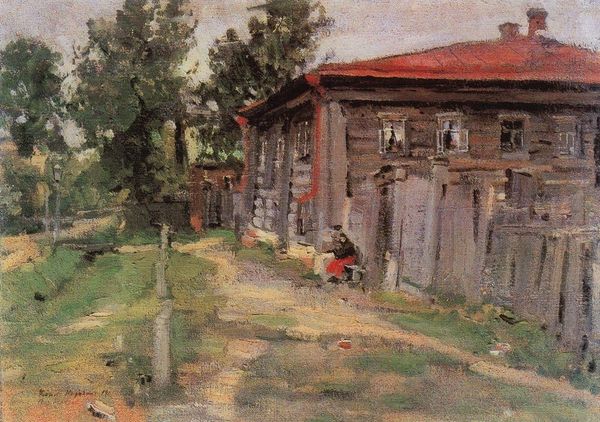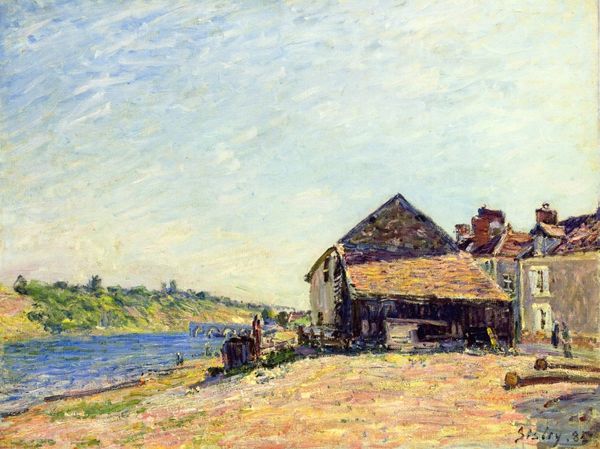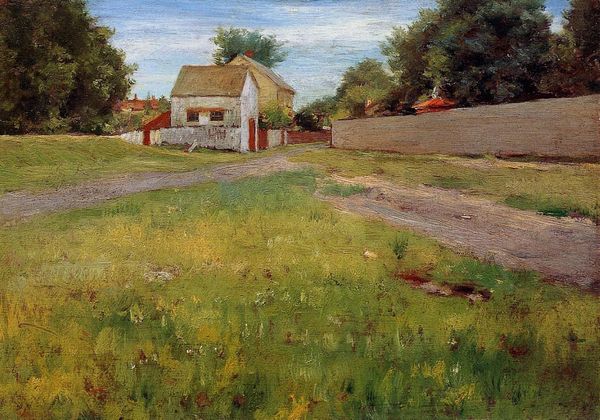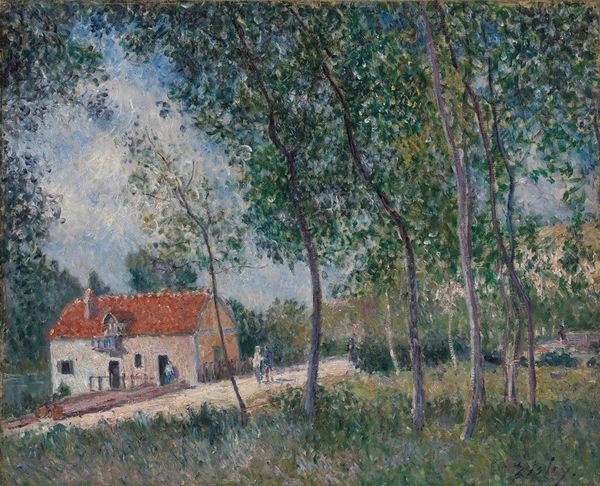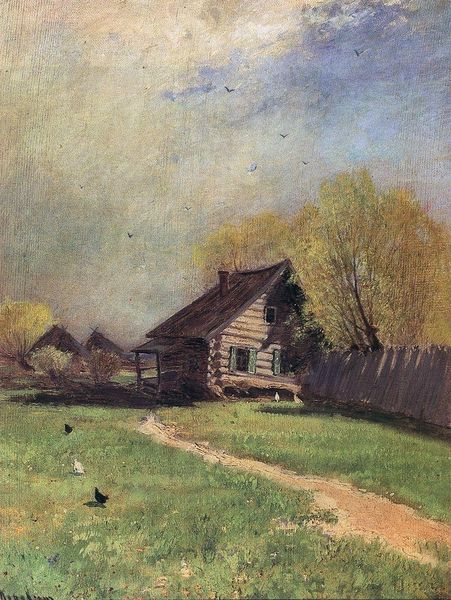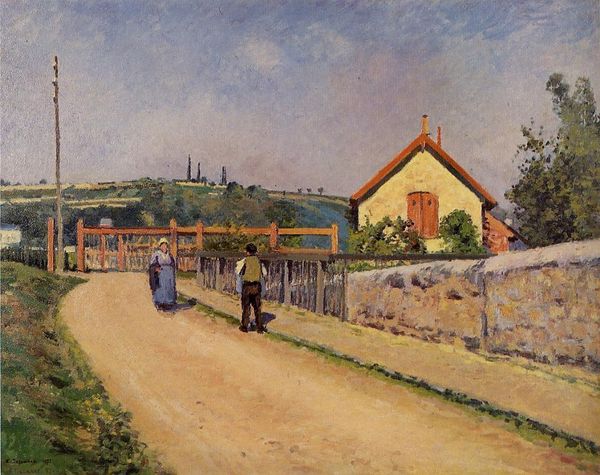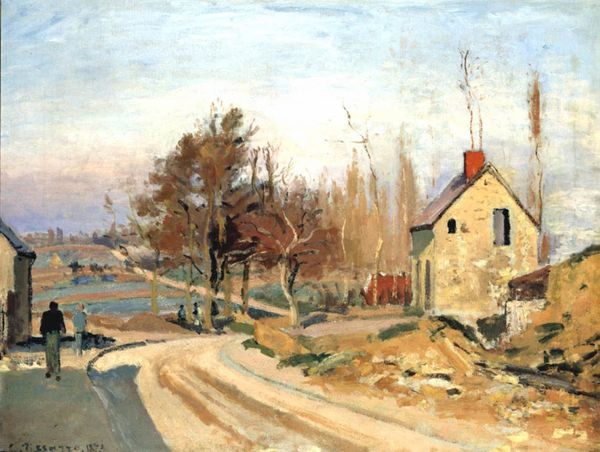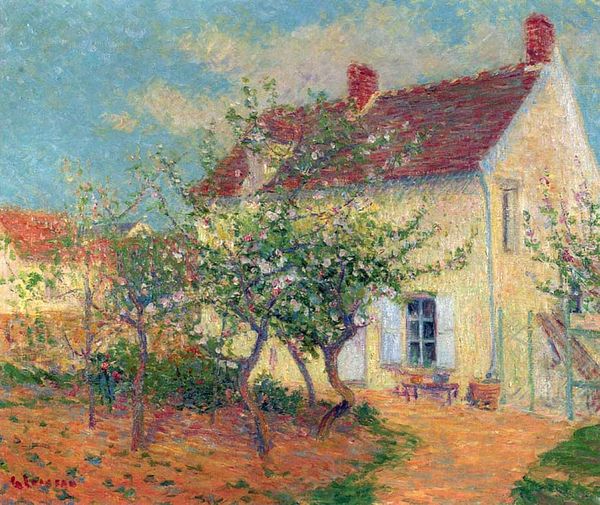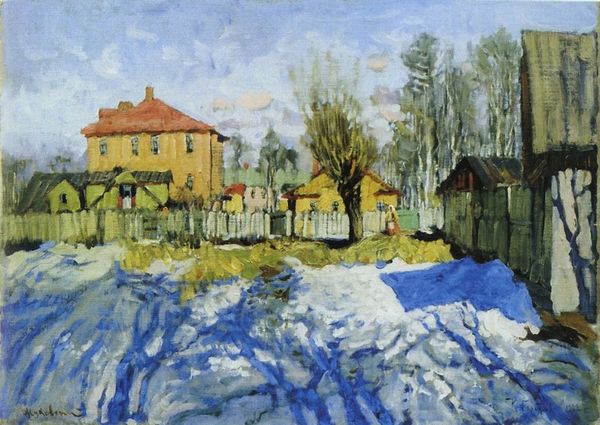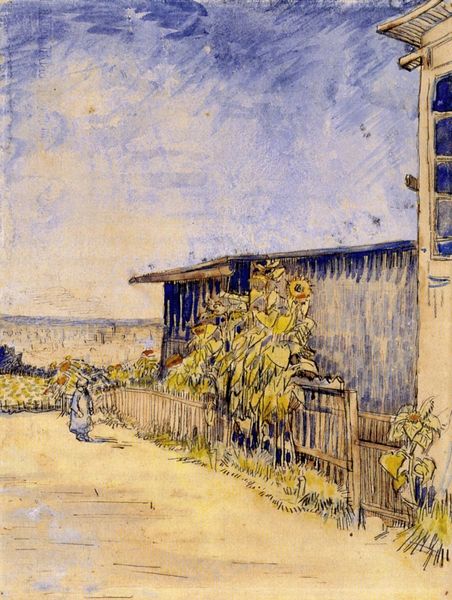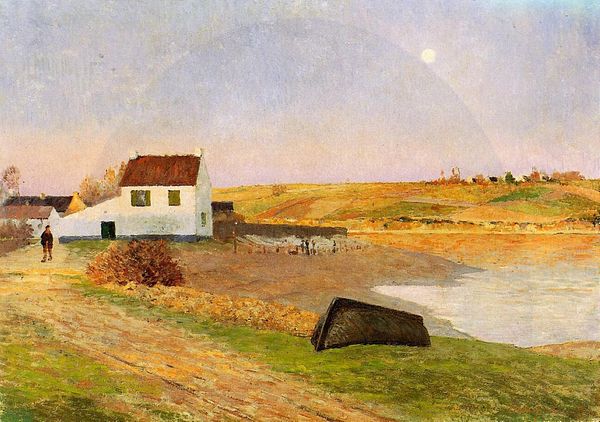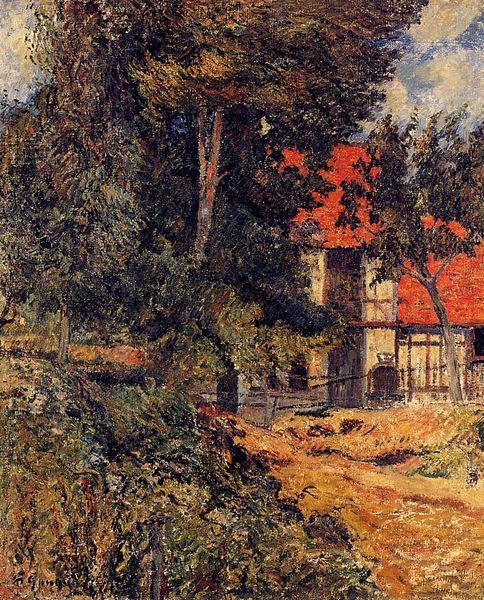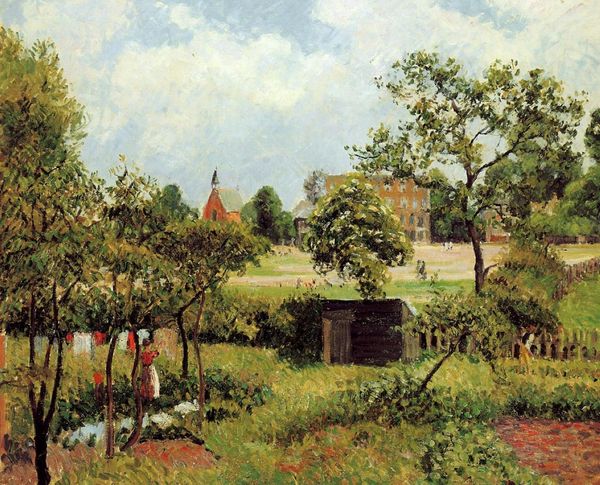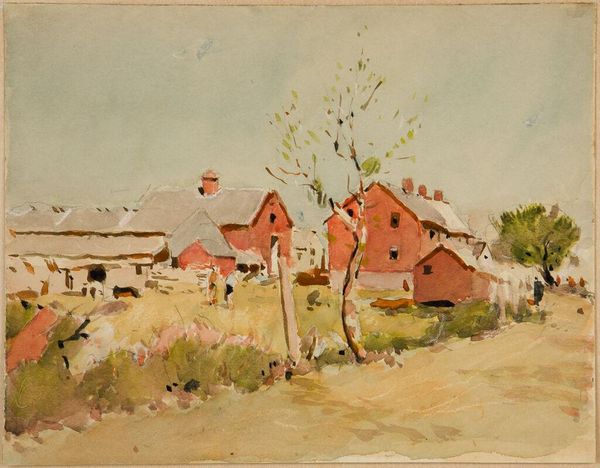
painting, plein-air, oil-paint
#
dutch-golden-age
#
painting
#
impressionism
#
plein-air
#
oil-paint
#
landscape
#
oil painting
#
cityscape
#
watercolor
Copyright: Public domain
Curator: Take a moment with me to observe Claude Monet's "The Blue House at Zaandam," painted in 1871. What is your immediate impression? Editor: A vibrant snapshot! That blue jumps out, but the visible brushstrokes give it a textured, almost tactile quality. I wonder about the materials he used to get that effect. Curator: Indeed. Notice how the composition is structured by diagonals, directing our gaze. The angles created by the house, the fence, and the road pull us into the scene, beyond that striking color. Editor: I am compelled to think about the process here—the physical labor involved in applying these pigments to canvas. The subject itself suggests something about Dutch culture and architectural traditions of the time. Was that shade of blue readily available, I wonder, or a costly pigment? Curator: Color theory was of paramount interest to Monet at this time, especially exploring light and atmosphere. The touches of contrasting color—that dash of red on the adjacent building and the lemon-yellow tree—enhance the overall effect. Editor: I'm drawn to the industrial presence suggested by the distant windmill—a hint of the town's economy and labor. And then the fence. Did he consider what its construction and material signify? A delineation between public and private? Curator: Absolutely. Monet’s placement allows you to navigate a perspective through layers. What looks like a purely formal exercise becomes a structured commentary on space and experience. Editor: Looking again at the brushwork and texture brings back the context: consider, how quickly would this have been painted in "plein air"? It must capture the labor involved and urgency of observation. Curator: Viewing Monet through a strictly material lens can perhaps restrict one from appreciating the sophisticated compositional arrangement and delicate chromatic harmony he was so skillfully exploring. Editor: But considering his relationship to the social context, the material processes involved, allows one to enrich the meaning derived from its formal qualities. Curator: A stimulating analysis. Monet's vision of Zaandam certainly prompts continued consideration and conversation. Editor: Indeed. I'm left thinking about what a contemporary impressionist painting featuring mass-produced pigments and readily available synthetic material might reveal.
Comments
No comments
Be the first to comment and join the conversation on the ultimate creative platform.
